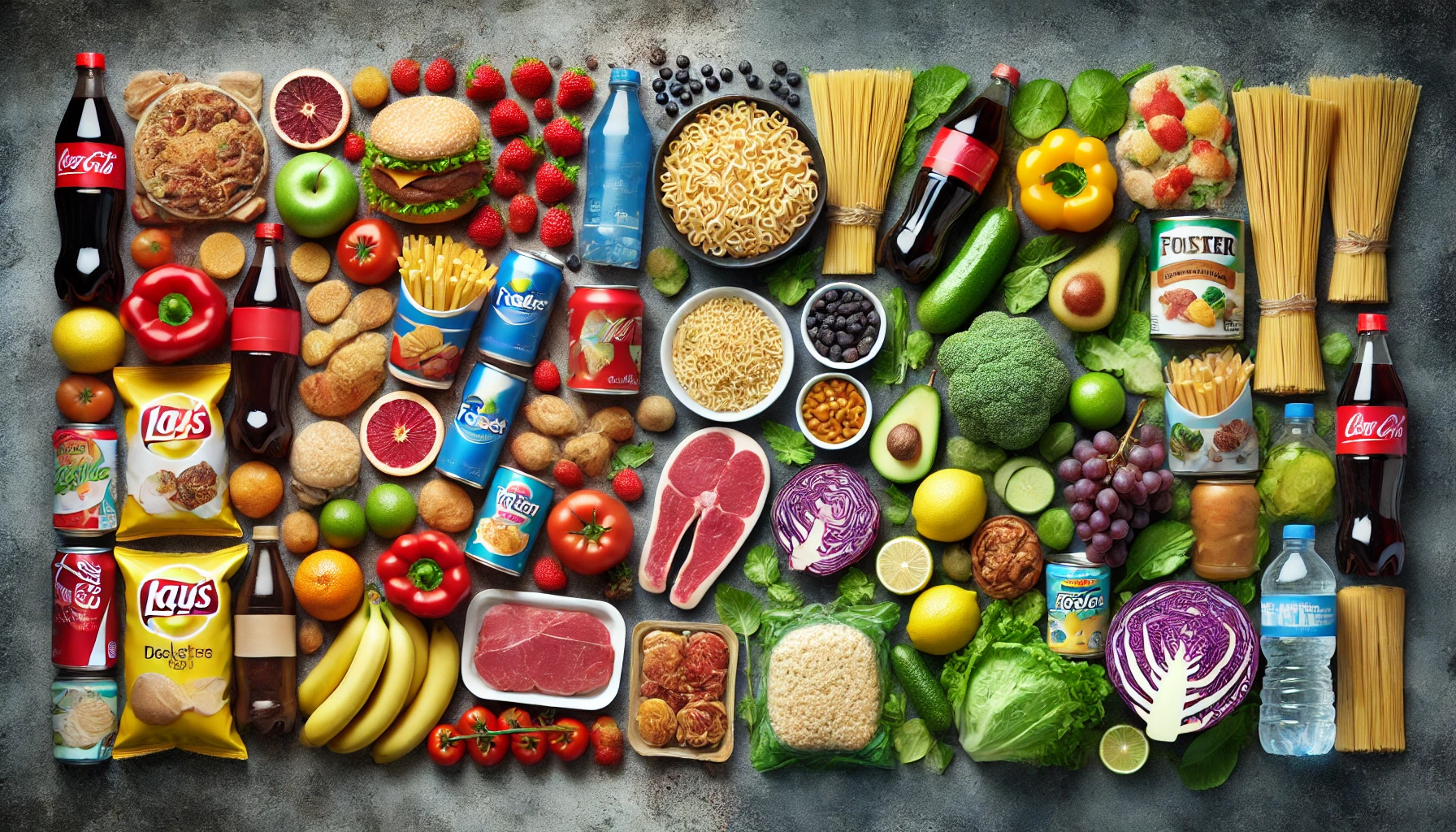Ultra-processed foods have become a major part of modern diets, offering convenience and long shelf life. However, their effects on health have raised concerns among nutritionists and medical professionals. In this article, we will explore what ultra-processed foods are, their impact on your health, and how to make healthier choices.
What Are Ultra-Processed Foods?
Ultra-processed foods are industrially manufactured products that contain little to no whole foods. They often include ingredients such as preservatives, artificial flavors, sweeteners, and emulsifiers. These foods are designed to be highly palatable and convenient but lack essential nutrients.
Common examples of ultra-processed foods include:
- Soft drinks and energy drinks
- Packaged snacks (chips, cookies, and candy bars)
- Instant noodles and ready-to-eat meals
- Processed meats (hot dogs, sausages, and chicken nuggets)
- Sugary breakfast cereals and flavored yogurt
These foods undergo multiple processing steps, often stripping them of natural nutrients while adding artificial ingredients that can be harmful to health.
How Ultra-Processed Foods Affect Your Health
1. Increased Risk of Obesity
Ultra-processed foods are often high in sugar, unhealthy fats, and refined carbohydrates. These ingredients contribute to excessive calorie intake, leading to weight gain and obesity. Studies have shown that people who consume more ultra-processed foods tend to have higher body fat percentages and a greater risk of metabolic disorders.
2. Higher Risk of Heart Disease
Diets high in ultra-processed foods have been linked to an increased risk of cardiovascular diseases. These foods often contain trans fats, sodium, and additives that contribute to high blood pressure, inflammation, and elevated cholesterol levels—key risk factors for heart disease.
3. Increased Likelihood of Type 2 Diabetes
Excessive sugar consumption from ultra-processed foods can lead to insulin resistance, increasing the risk of type 2 diabetes. Many processed foods also have a high glycemic index, causing blood sugar levels to spike rapidly, which over time can damage the body’s ability to regulate insulin properly.
4. Negative Impact on Gut Health
The artificial ingredients and preservatives in ultra-processed foods can disrupt the balance of gut bacteria, leading to digestive issues and a weakened immune system. A diet lacking in fiber and natural nutrients can also contribute to conditions such as irritable bowel syndrome (IBS) and inflammation in the digestive tract.
5. Higher Risk of Cancer
Several studies have suggested that consuming ultra-processed foods may be linked to an increased risk of cancer. Additives, artificial colors, and preservatives used in these foods can have carcinogenic effects. Additionally, processed meats have been classified as a Group 1 carcinogen by the World Health Organization (WHO), meaning they are strongly linked to cancer.
6. Nutrient Deficiency
Ultra-processed foods are often low in essential vitamins, minerals, and fiber. Relying on these foods instead of whole, nutrient-dense foods can lead to deficiencies in important nutrients such as vitamin D, magnesium, and omega-3 fatty acids, all of which are vital for overall health.
How to Reduce Ultra-Processed Food Consumption
While it may be difficult to eliminate ultra-processed foods entirely, making small changes can significantly improve your health. Here are some practical tips to reduce consumption:
1. Choose Whole Foods
Opt for fresh fruits, vegetables, whole grains, lean proteins, and healthy fats. These foods provide essential nutrients and help maintain a balanced diet.
2. Read Food Labels Carefully
Avoid foods with long ingredient lists that include artificial additives, preservatives, and high amounts of sugar or sodium. Look for natural ingredients and minimal processing.
3. Cook at Home More Often
Preparing meals at home allows you to control the ingredients and reduce reliance on packaged or processed foods. Cooking from scratch using whole ingredients is a great way to maintain a healthier diet.
4. Reduce Sugary Drinks and Snacks
Instead of soda and energy drinks, choose water, herbal teas, or natural fruit juices. Replace processed snacks with nuts, seeds, and homemade treats.
5. Plan Your Meals
Planning meals ahead of time can help you avoid the temptation of fast food and processed meals. Having healthy snacks and meals readily available makes it easier to make nutritious choices.
6. Gradually Transition to Healthier Alternatives
Instead of making drastic changes, slowly introduce healthier alternatives into your diet. For example, replace white bread with whole grain options, swap sugary cereals for oatmeal, and choose homemade smoothies over store-bought versions.
Final Thoughts
Ultra-processed foods may be convenient and tasty, but their long-term impact on health is concerning. From increasing the risk of obesity and chronic diseases to negatively affecting gut health and nutrient intake, these foods should be consumed with caution. By making conscious choices and prioritizing whole, minimally processed foods, you can significantly improve your overall well-being.
Would you like to see more articles on healthy eating and nutrition? Let me know what topic you’d like next!

